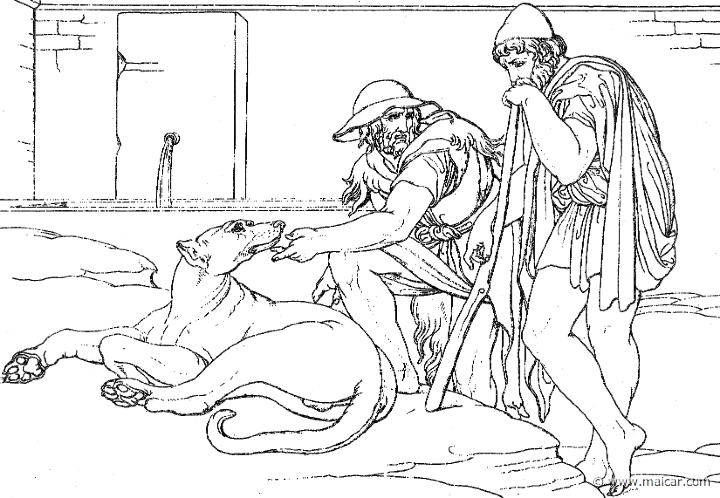
Now as these two were conversing thus with each other, a dog who was lying there raised his head and ears. This was Argos, patient-hearted Odysseus' dog, whom he himself raised, but got no joy of him, since before that he went to sacred Ilium.
In the days before, the young men had taken him out to follow goats of the wild, and deer, and rabbits; but now he had been put aside, with his master absent, and lay on the deep pile of dung, from the mules and oxen, which lay abundant before the gates, so that the servants of Odysseus could take it to his great estate, for manuring.
There the dog Argos lay in the dung, all covered with dog ticks.
Now, as he perceived that Odysseus had come close to him, he wagged his tail, and laid both ears back; only he now no longer had the strength to move any closer to his master, who, watching him from a distance, without Eumaios noticing, secretly wiped a tear away, and said to him:
"Eumaios, this is amazing, this dog that lies on the dunghill. The shape of him is splendid, and yet I cannot be certain whether he had the running speed to go with this beauty, or is just one of the kind of table dog that gentlemen keep, and it is only for show that their masters care for them."
Then, O swineherd Eumaios, you said to him in answer: "This, it is too true, is the dog of a man who perished far away..."
So he spoke, and went into the strongly settled palace, and strode straight on, to the great hall and the haughty suitors.
But the doom of dark death now closed over the dog, Argos, when, after nineteen years had gone by, he had seen Odysseus.
Odyssey, Book XVII, trans. Richard Lattimore.